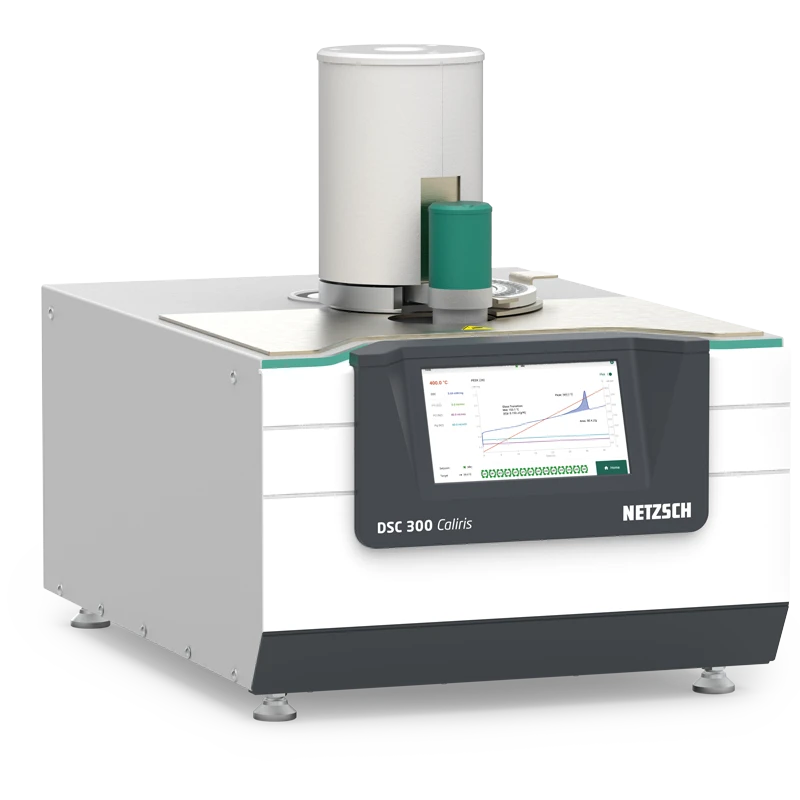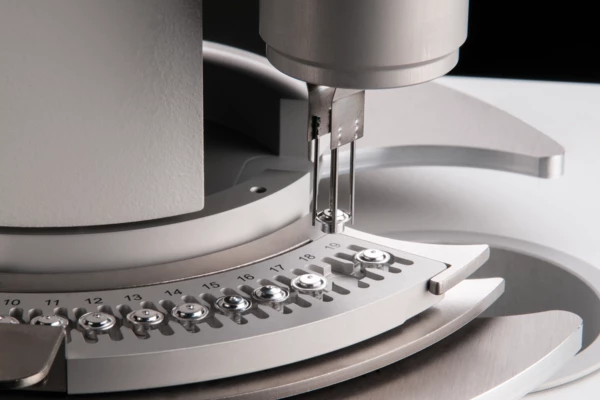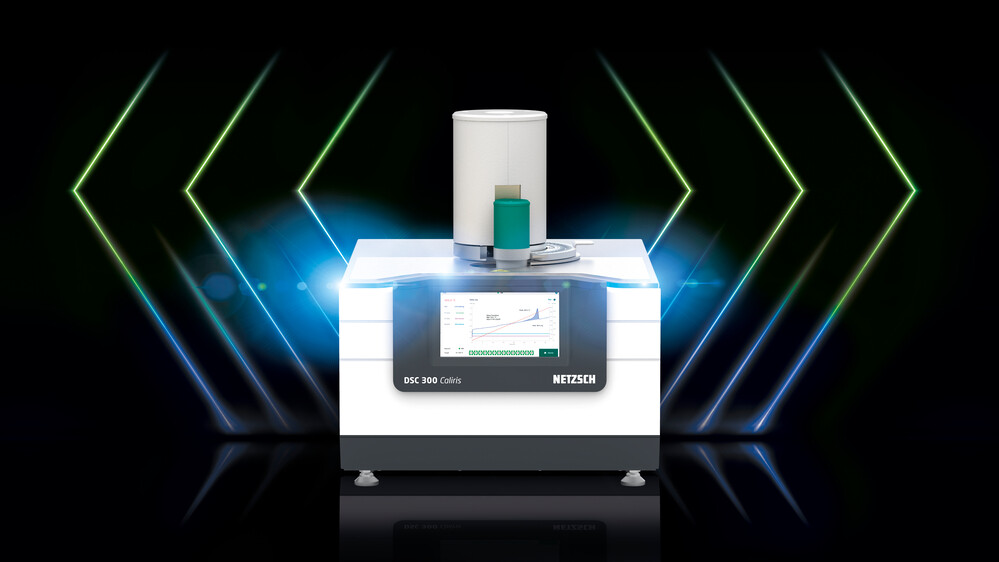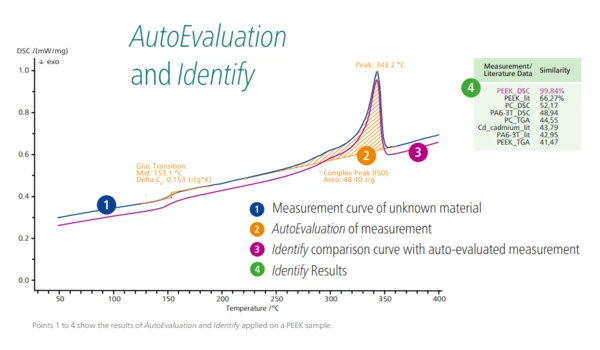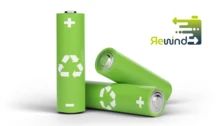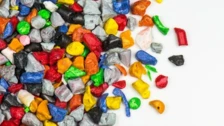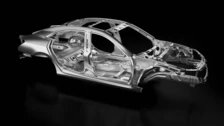Highlights
The DSC Caliris® Classic is a robust instrument with attractive price-performance ratio
Easy-to-use, compact, robust, precise, optimized for everyday use – these are the features of the innovative DSC 300 Caliris® Classic. The unique design of this instrument encompasses everything needed for successful DSC investigations – regardless of whether the user is a beginner or an experienced professional. Above all, it is the innovative software that sets new standards: the already established AutoEvaluation and Identify now meet the next generation of data management LabV®, which keeps track of the collected data and organizes it for a smooth laboratory workflow.
The DSC 300 Caliris®Classic offers:
- a compact design for more space in your lab
- smart software that allows you to get started quickly with DSC measurements
- automated measurement and evaluation, making routine easy
- various cooling systems:

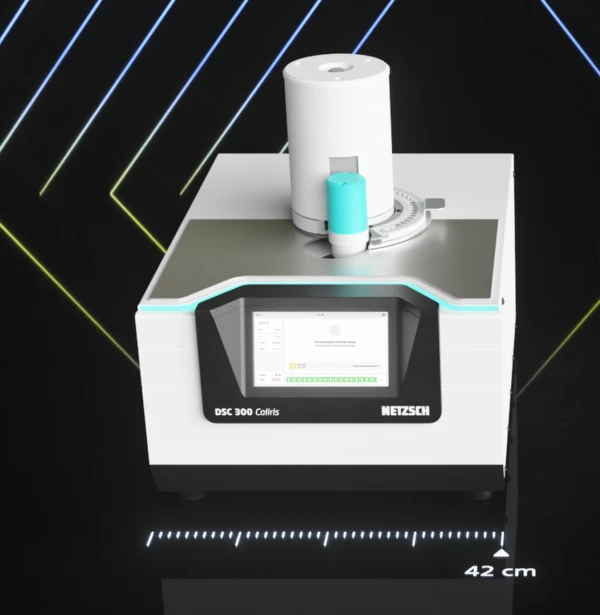
Compact Lab Instrument
With laboratory space often at a premium, the compact design of the DSC 300 Caliris® Classic with cooling accessories such as the intracooler makes it an excellent choice. It is perfect for at-line testing and can be easily set up in a production environment for QA/QC purposes.
Touch Display for Improved Productivity and Workflows
In addition to the conventional display, the DSC 300 Caliris® Classic also offers an optional integrated touchscreen display that provides detailed instrument and measurement information.
Once a measurement has been prepared using the Proteus® software, it can be started directly from the touch display. When a measurement is in progress, the touch display provides up-to-the-minute measurement information without the need to access your PC.
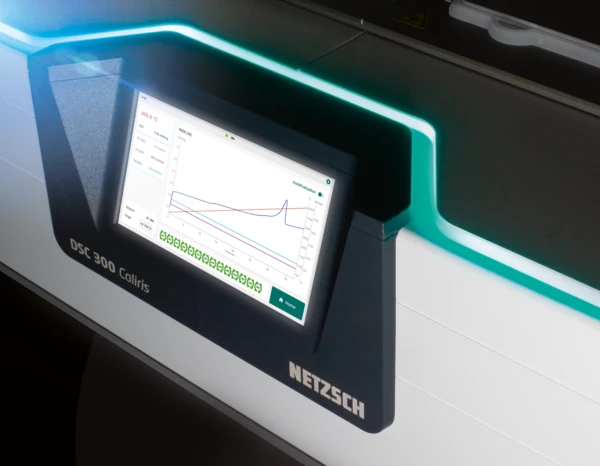
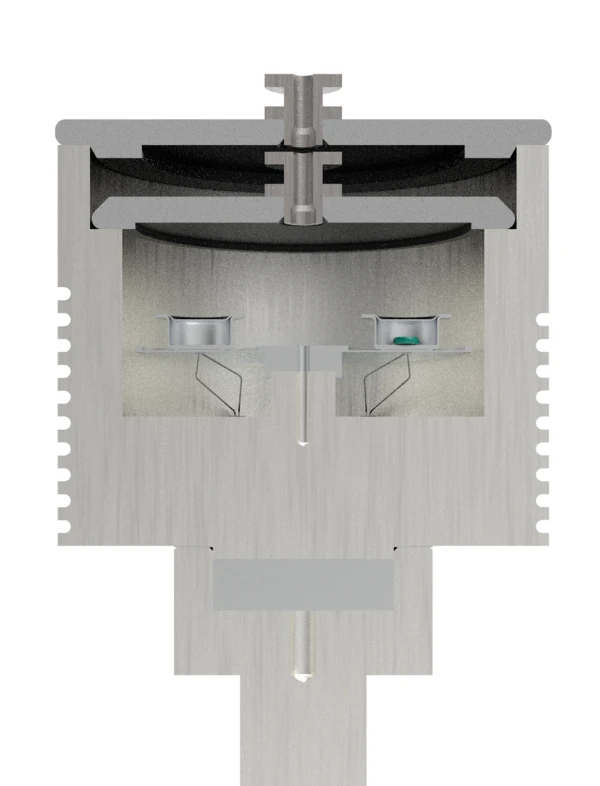
Excellent Performance Even in Less-Than-Perfect Environments
The monolithic DSC sensor is stable in harsh environments and provides optimal resolution. The sensor disks and thermocouple wires are laser-welded for high sensitivity and ruggedness. This is further emphasized by the fact that the sensor can be cleaned with a glass fiber brush. In the event of unwanted contamination of the cell or sensor, the temperature range of up to 600°C allows easy cleaning by baking out the contaminants. In addition, cleverly designed connectors allow quick and easy installation of various cooling systems.
Method
Differential Scanning Calorimetry (DSC) / Differential Thermal Analysis (DTA)
Differential scanning calorimetry (DSC) is most frequently used thermoanalytical method to determine EndothermicA sample transition or a reaction is endothermic if heat is needed for the conversion.endothermic and ExothermicA sample transition or a reaction is exothermic if heat is generated.exothermic transitions like the determination of transformation temperatures and enthalpy of solids and liquids. It measures the difference between the heat flow rate into a sample versus into a reference as a function of temperature/time.
DSC is widely used in various fields such as polymer science, pharmaceuticals, food and cosmetics, organics and inorganics. It provides critical information about material properties like melting points, CrystallizationCrystallization is the physical process of hardening during the formation and growth of crystals. During this process, heat of crystallization is released.crystallization temperatures, Phase TransitionsThe term phase transition (or phase change) is most commonly used to describe transitions between the solid, liquid and gaseous states.phase transitions and purity.
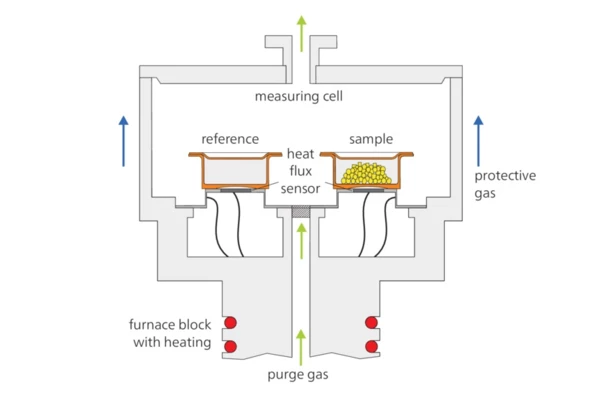
Measuring Principle of Differential Scanning Calorimetry
The measurement principle of Differential Scanning Calorimetry (DSC) is based on monitoring the difference in the amount of heat required to raise the temperature of a sample and a reference material at the same rate. Because the sample and reference are exposed to identical temperature conditions, any difference in heat flow between them is measured. This difference indicates that the sample is undergoing physical or chemical changes such as melting, CrystallizationCrystallization is the physical process of hardening during the formation and growth of crystals. During this process, heat of crystallization is released.crystallization, or chemical reactions that either absorb or release heat.
A DSC measuring cell consists of a furnace and an integrated heat-flux sensor with designated positions for the sample and reference pans.
The DSC instrument records these heat flow differences as the temperature changes, providing a detailed profile of the sample's thermal properties and transitions.
The DSC systems are based on relevant instrument and application standards, e.g., ISO 11357, ASTM E793, ASTM D3895, ASTM D3417, ASTM D3418, DIN 51004, DIN 51007.
Specifications
Technical Data
Temperature range
Automatic Sample Changer
Heating/Cooling rate
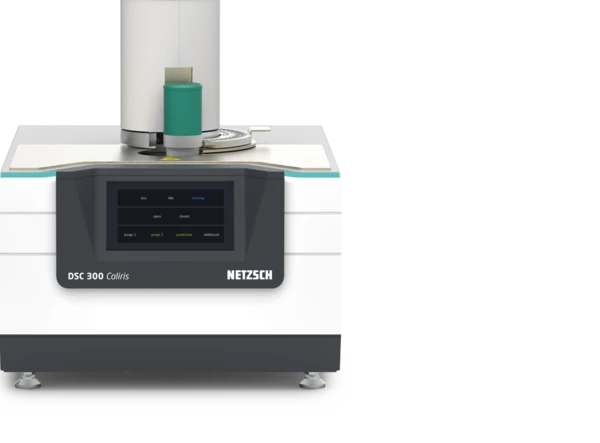
Enthalpy precision:
± 0.1% for indium
Specific heat determination: Optional
Temperature modulation: Optional
Gas atmospheres:
Inert, oxidizing, static and dynamic operation
Automatic Sample Changer (ASC):
Up to 20 samples and references, optional
Cooling device options:
Compressed air cooling (RT to 600°C)
IC40 (-40 °C to 600°C)
IC70 (-70°C to 600°C)
LN2 (-170°C to 600°C)
Indium Response Ratio:
> 100 mW/K
(Mean value, related to indium as standard material under measurement conditions typically used for polymer investigation)
Heating/Cooling rate:
0.001 K/min to 100 K/min
(Maximum rate depends on temperature)
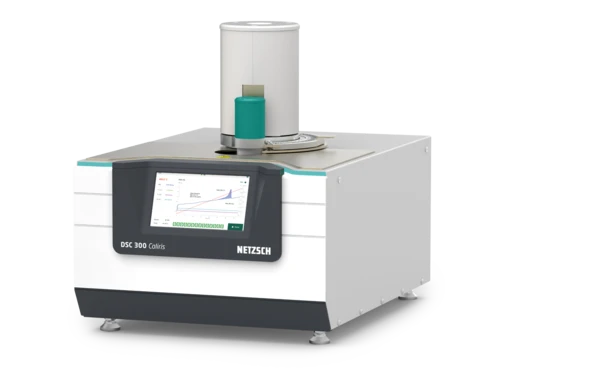

Software
Software Proteus®
Get started quickly with SmartMode
The system's SmartMode interface has been meticulously designed with a clear and consistent structure, ensuring easy navigation and user-friendliness, even for beginners. Its intuitive interface provides quick and efficient access to the information you need.
The Wizards menu offers a comprehensive set of pre-configured measurement templates that require minimal input, allowing instant measurements with a single click.
In the Predefined Methods section, you will find all of the materials featured in the NETZSCH Thermal Properties of Polymers which can also be found on the NETZSCH Polymer Poster, along with corresponding measurement methods specifically designed for experimentation.
In addition, the User Methods menu allows users to save their previously performed methods as templates for future measurements. This eliminates the need to repeatedly redefine measurement parameters, streamlining the process.
This instrument is LabV®️-primed
LabV®️ takes the data from your analytical instrument: It automatically imports all measurement data into a central and secure database solution, the LabV®️ software. This allows you to visualize the data in LabV®️ and to make them searchable. Your data will now be accessible from anywhere. Moreover you have the possibility to generate reports.

Consultancy & Sales
Do you have further questions about the instrument, the method and would you like to speak to a sales representative?
Service & Support
Do you already have an instrument and need technical support or spare parts?
Related Devices
- DSC 300 Caliris® Select
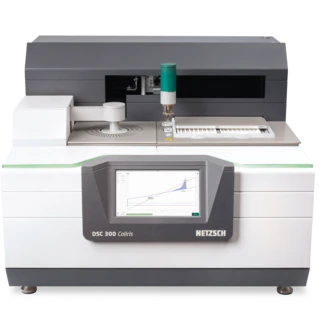
Quality assurance of polymers, food, cosmetics and organics
- Choose your appropriate module: Standard, Polymer or High-Performance
- Temperature range: -180°C to 750°C
- Automatic Sample Changer: Up to 192 + 12 samples and references
- DSC 300 Caliris® Supreme
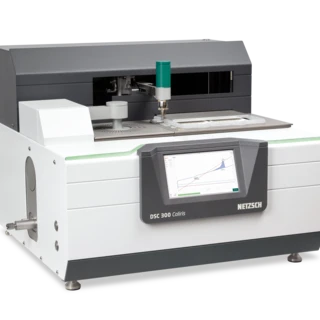
Quality assurance of polymers, food, cosmetics and organics
- Three easily interchangeable modules: Standard, Polymer and High-Performance
- Temperature range: -180°C to 750°C
- UV-Accessory: Investigate Curing Reactions with Photo-Calorimeter
- DSC 204 HP Phoenix®
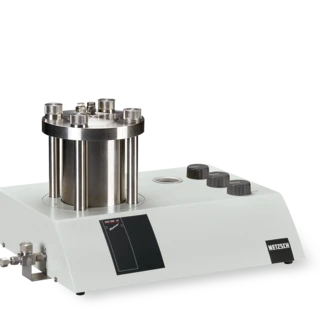
The high-pressure Differential Scanning Calorimeter for specific reactions
- Pressure range from vacuum to 15 MPa (150 bar)
- Temperature range: -150°C to 600°C
- Measurements in inert, reducing and oxidizing atmospheres
Downloads and Media
Brochures
 DSC 300 Caliris® SeriesBrochure(pdf – 3.44 MB)
DSC 300 Caliris® SeriesBrochure(pdf – 3.44 MB) Technical Data Sheet DSC 300 Caliris® Series(pdf – 53 KB)
Technical Data Sheet DSC 300 Caliris® Series(pdf – 53 KB) Accessories for Differential Scanning Calorimeters and ThermobalancesAccessories Catalogue(pdf – 8.87 MB)
Accessories for Differential Scanning Calorimeters and ThermobalancesAccessories Catalogue(pdf – 8.87 MB) Thermal Characterization of PolymersBrochure(pdf – 4.88 MB)
Thermal Characterization of PolymersBrochure(pdf – 4.88 MB) Shape the future of paints and coatingsBrochure together with Malvern Panalytical(pdf – 1.45 MB)
Shape the future of paints and coatingsBrochure together with Malvern Panalytical(pdf – 1.45 MB)
